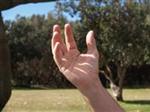ONLINE HUMAN BIOLOGY - ANATOMY AND PHYSIOLOGY INTRODUCTION OR REFRESHER
An understanding of basic human biology is a foundation for studying ore working in a wide range of different things.
If you want to work in health, fitness, medicine, natural therapies or any related area, this course provides you with that level of knowledge as a basis for pursuing job opportunities or further studies in health and wellbeing.
You will understand what is a human body, how it works and which factors determine health. A comment from one of our Human Anatomy and Physiology (1A) students: "Very pleased with the work" L. Lowery
Lesson Structure
There are 6 lessons in this course:
-
Cells & Tissues -
-
Explains the human body at a microscopic level, including the structure and function of cells, tissues and membranes.
-
Includes: the cell; human tissues; cell division; cell process; nutrient and waste exchange in cells.
-
The Skeleton -
-
Examines features of the human skeletal system.
-
Includes: bone anatomy; bone types; number of bones in adult human body; joints of bone; bone movements; the skeleton; fractures and fracture healing; osteoporosis.
-
The Muscular System -
-
Describes the human muscular system, in terms of structure and basic function.
-
Includes: tendons; movement; muscle fibre types; skeletal muscle types; summary.
-
The Nervous System -
-
Looks at the human nervous system, in terms of structure and basic functions.
-
Includes: nerve cells; sensory neurons, motor neurons; nerve terminology; the nervous system; central and peripheral nervous system; main parts of the nervous system; the spinal cord; cranial nerves; the autonomic nervous system; reflex actions.
-
Digestion & Excretion -
-
Explains different physiological systems of digestion and excretion in the body.
-
Includes: alimentary canal; mouth; oesophagus; stomach; small intestine; large intestine; accessory digestive organs; tongue, teeth, salivary glands; liver; pancreas, nutrient digestion disorders; selected digestive system disorders; vomiting; peptic ulcer, jaundice; haemorrhoids; cirrhosis; excretion; urinary system.
-
Physiological Systems
-
Focuses on the different physiological systems of the body.
-
Includes: endocrine system.
Aims
-
Explain the human body at a microscopic level, including the structure and function of cells, tissues and membranes.
-
Explain features of the human skeletal system.
-
Describe the human muscular system, in terms of structure and basic function.
-
Explain the human nervous system, in terms of structure and basic functions.
-
Explain different physiological systems of digestion and excretion in the body.
-
Explain different physiological systems of the body.
 In this course, before we investigate the gross anatomical structures of the body, we learn about the individual units that make up all tissues; cells. Many vital processes occur in the cell. Different cells have different structures, numbers of organelles and so on, to enable them to perform their specific functions. These cells together form tissues which in turn group to form organs and organ systems that combine different cell types to enable systems to perform coordinated functions.
In this course, before we investigate the gross anatomical structures of the body, we learn about the individual units that make up all tissues; cells. Many vital processes occur in the cell. Different cells have different structures, numbers of organelles and so on, to enable them to perform their specific functions. These cells together form tissues which in turn group to form organs and organ systems that combine different cell types to enable systems to perform coordinated functions.
In order to investigate systemic and regional anatomy later in the course, it is
first important that we look at the microscopic anatomy of cells. We will start by
discussing common organelles and structures, before examining some of the specialised
structures found in some cell types.
There are a range of basic functions that are common to most cells in the body, along with a range of specialist functions performed by specific cells or cell types. This course will investigate a range of these common processes as well as studying the structures that make up the body.
